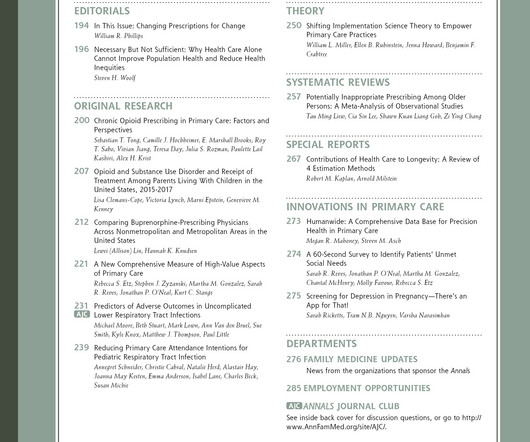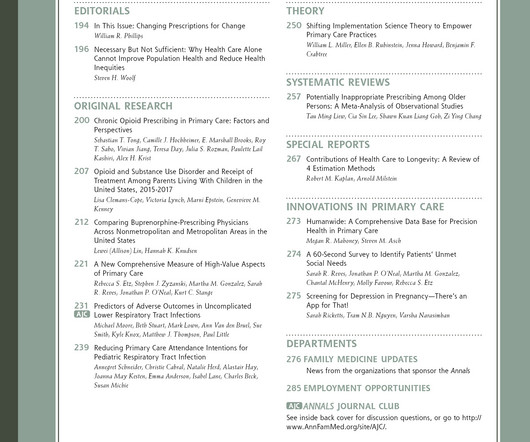Disaster preparedness, What we have learned from COVID 19 pandemic [COVID-19]
Annals of Family Medicine
NOVEMBER 20, 2024
During the pandemic, 62% (n=21) used telehealth tools, including 50% (n=17) by telephone, 50% (n=17) via live video, and 24% (n=8) through text messaging. Mental health services remained adequate for 65% (n=22), compared to 68% (n=23) before pandemic. 32% (n=11) reported patient satisfaction with telemedicine transitions.













Let's personalize your content